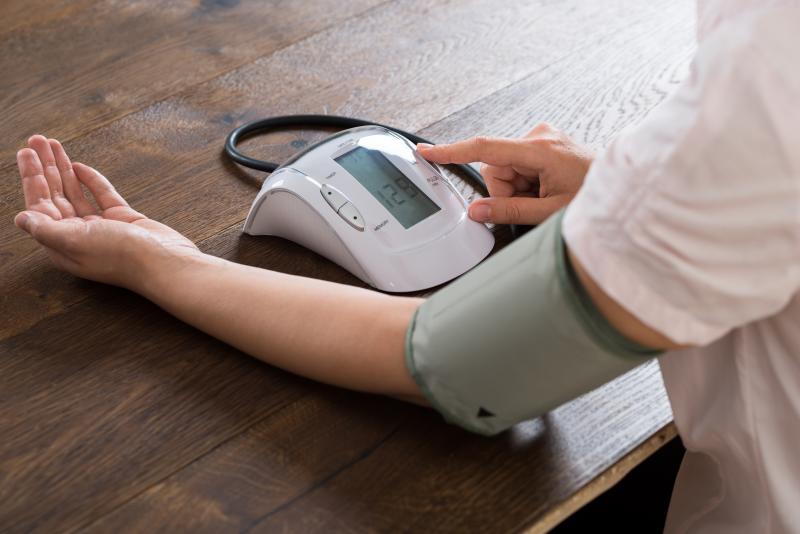
Self-reported early onset of hypertension (<35 years of age) is strongly related to a higher likelihood of having left ventricular hypertrophy (LVH) and coronary calcification, among others, in midlife, a study reports. This suggests that self-reported age at onset is feasible for evaluating the risk of hypertension-mediated organ damage (HMOD).
Researchers looked at 2,649 individuals (mean age, 50 years at the time of outcome assessment; 57 percent female) participating in the Coronary Artery Risk Development in Young Adults (CARDIA) study. All participants had available measurements for echocardiographic LVH, left ventricular diastolic dysfunction (LVDD), coronary calcification and albuminuria.
Participants were grouped according to self-reported hypertension onset age: <35 years (n=194), 35–44 years (n=297), ≥45 years (n=340) and no hypertension (n=1,818). Those with early onset condition were more likely to be women and comorbid with diabetes. The prevalence of all HMODs was highest in the group with reported hypertension onset <35 years of age.
Multivariable logistic regression models revealed that compared with self-reported no hypertension, self-reported hypertension onset at <35 years was associated with greater odds of LVH (odds ratio [OR], 2.38, 95 percent confidence interval [CI], 1.51–3.76), LVDD (OR, 2.32, 95 percent CI, 1.28–4.18), coronary calcification (OR, 2.87, 95 percent CI, 1.50–5.47) and albuminuria (OR, 1.62, 95 percent CI, 0.81–3.26).
Meanwhile, self-reported hypertension onset at ≥45 years was only associated with LVDD (OR, 1.81, 95 percent CI, 1.06–3.08).
The overall agreement between self-reported and objectively defined hypertension onset age groups was 78–79 percent.
Additional research is needed to establish the utility of self-reported hypertension onset age in cardiovascular disease risk prediction in other populations, according to the researchers.